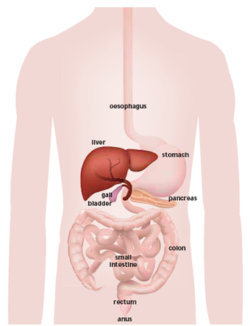
What is IBS?
IBS is a chronic disorder that affects approximately 14-20% of the world population. Irritable bowel syndrome is classified as a disorder of intestinal function and motility by ICD-10 (the international statistical classification of diseases and related health problems). It has no cure but can be managed through diet, lifestyle management, medications, and treatments. A flare-up occurs when the normal rhythm of contractions throughout the intestines becomes irregular and/or there are increased muscle contractions in the smooth muscles lining the inner wall. The best way to avoid IBS flare-ups is to manage your diet, exercise regularly, limit stress, and learn how to relax. According to many doctors, it runs most rampant with females in their late teens to early twenties. IBS is linked to IBD ( inflammatory bowel disease ). It can be considered a subtype of IBD. It is also frequently diagnosed after IBD, esophageal reflux, or anorexia.
What is an IBS Flare-up?
Flare-ups are unpredictable, but IBS sufferers often know the warning signs. Symptoms include diarrhea, constipation, abdominal pain, bloating, and cramping. It is an entirely functional disorder, meaning no structural damage or disease is found within the gastrointestinal tract. It mainly affects how food moves through your digestive system rather than what you eat (although certain foods can act as trigger factors). It causes inflammation of the gastrointestinal tract lining; It will show up on x-rays, colonoscopies, and other tests like bloodwork.
What is the best way to avoid a flare-up?
According to recent studies, people who exercise regularly (2+ hours per week) significantly lower the risk. It is also linked to depression, so patients are encouraged to find a mental health professional to help with treatment plans. Flare-ups are more frequent during heightened stress, so patients need to manage their stress levels. It has also been proven that exercise reduces stress levels.
What are the best self-care treatments for IBS?
The best self-care treatments are dietary changes, exercise, stress management, and learning ways to relax. A specialist in digestive disorders known as a gastroenterologist can help formulate the best treatment plan. If you have extreme diarrhea, it's common to find relief with over-the-counter medications containing loperamide or Imodium A-D; the most effective OTC medications available for constipation relief from it are laxatives containing phenolphthalein or bisacodyl. Medications can sometimes cause side effects. The best way to avoid side effects is by taking medications in small doses and/or for short periods. Medications are available worldwide, so it recommends checking with your doctor before taking any medication since some may not be suitable for certain people, including pregnant women, breastfeeding mothers, and children under 16 years of age.
What are the best Therapies for IBS?
The best therapies are both medical and alternative therapies. Many researchers have studied the benefits of acupuncture on patients because it decreases abdominal pain, nausea, vomiting, diarrhea, bloating sensation, and bowel movement difficulty. Many patients also benefit from hypnosis. Patients who have been hypnotized have reported reduced symptoms, including pain, anxiety, and depression. Many patients also benefit from a combination of medications, therapies, and treatments. The most common treatment plan managed by gastroenterologists is using both traditional medications and self-hypnosis to manage stress. Massage therapy can be beneficial for women because it reduces the anxiety that may worsen symptoms in women.
What is my GI doctor most likely to recommend for IBS?
Your general practitioner or specialist in digestive disorders, known as a gastroenterologist, is very likely to prescribe you Imodium A-D if you're suffering from moderate diarrhea, an antidepressant medication like paroxetine (Paxil), or medications like Zelnorm if you're suffering from constipation. I highly recommend that sufferers keep track of symptoms, treatments, and flare-ups because it's essential to your management plan in the future.
